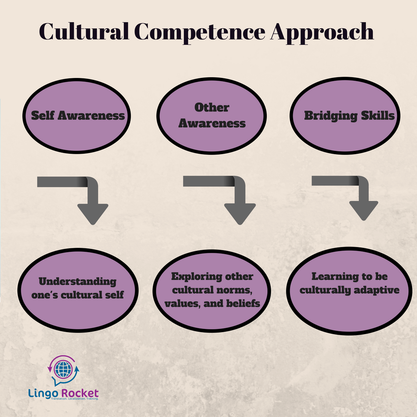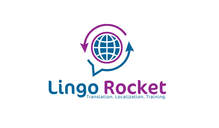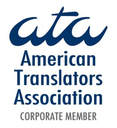LINGO ROCKET BLOG |
 World Kid Lit Month has been celebrated every September since 2016. The goal for the celebration is to promote world literature for children and teens. According to Alexandra Buchler, the director of Literature Across Frontiers: "By reading beyond our borders we explore the vast diversity of voices and perspectives that complement and contrast with our own. Global Kid Lit offers a window onto the world and a reflection of other cultures, but also expands the opportunities for children to find the texts that speak personally to them." This year Armchair Travel, Bibliodiversity, Global Reads for a Global Outlook, and Found n Translation were the four main threads. Here is how you can support World Kid Lit Month next year:
0 Comments
 Modern-day technology allows you to learn a new language without leaving the comfort of your own home. However, is learning a language enough to never experience problems when traveling across the globe? While learning a new language is a great start, it is not quite enough to communicate effectively across cultures. Understanding nuances of languages, cultures, and societal norms will make you a successful cross-cultural ambassador. One of the most surprising pitfalls of intercultural communication is the way we express our refusal. For example, refusing politely and waiting until the other person insists is a cultural norm in the Middle East, Thailand, and Japan. It is also a norm in those countries to sugarcoat the message before giving any feedback. At the same time, in Germany, for instance, people expect you to be very direct when giving any kind of criticism or feedback. To make things even more complicated, while a nod of the head in most cultures is an equivalent to saying “yes”, in Balkan countries such as Bulgaria and Albania a single nod of the head up (not down) actually indicates a ‘no’. Furthermore, in Bulgaria shaking your head sideways actually means ‘yes, I agree’. To summarize, here are some tips to avoid miscommunication across cultures:
 It is undeniable that communicating with business partners and clients in their native language will help you close more deals successfully. However, with over 6,000 languages around the globe, how do you choose the language to focus on? What language will be the best choice for your career? Companies always value bi-lingual employees. You will receive an estimated 2% return on your investment for learning a foreign language. At the same time, Spanish has a return rate of 1.4 percent while German offers as high of a return as 3.8 percent. However, that’s not just a bigger salary; knowing another country’s language means you have a better chance of succeeding in business as a whole. You show your partners and clients that you care. One of the best advice you can get when it comes to language learning is the importance of immersing yourself into the culture as well. Being able to see outside of your cultural limitations will help you to relate to people and make you a better business person. Here are five languages we think will yield success in your business: 1. German While Japan and China may have the highest gross domestic product, their languages do not top the list. A high GDP does not correlate to higher earnings necessarily. Think like a business person. Consider the open economies of the world and which powerhouses have the most open economies. Germany makes up one of the three economic European powerhouses. So learning German will benefit an outside more economically than the language of a closed economy. 2. French About 300 million people in 29 countries speak French. You can easily see why it ranks second among the languages you need to learn to succeed in business. Initially, you may think that only French people in France speak French. However, when you know French, you can work with French companies in France and the many other French-speaking countries. Canada, Switzerland, Belgium, and North and sub-Saharan Africa all boast of this language as one of their main languages. Furthermore, France has the fifth-biggest economy. You would do well to partner with a French company. At first glance, French may appear to be spoken by only those living in France. But it happens to be the second most widely learned language after English. Knowing how to speak French opens the doors to French companies in France, and other French-speaking countries such as Canada, Switzerland, Belgium, and North and sub-Saharan Africa. As the world’s fifth-biggest economy and number-three destination for foreign investment, France is a key economic partner. If you’re looking to earn your Master’s degree, learn French. Students who can speak French are eligible for scholarship opportunities at some of Europe’s most renowned universities. 3. Spanish One of the easiest languages to learn, Spanish has graced the American school curriculum for decades. Twenty countries have Spanish as their primary language. So knowing Spanish will expand your business opportunities. Over 400 million people speak Spanish worldwide. Furthermore, countries like Mexico, Chile, and Columbia heave healthy, growing economies. You will want to have the ability to do business with companies in these healthy economies. Courses like Lingvist’s Spanish course will help you master Spanish quickly and thoroughly. 4. Mandarin China has the world’s new dominant economy. Plus, it has over a billion people you can work with. Learning even the basics of Mandarin will help you conduct basic communication with Chinese business partners. Unfortunately, Mandarin is a complicated language to learn. Thus, if you plan on tackling this language, plan on spending some time mastering it. 5. Arabic The 2018 gross domestic product of the Arab world was over $2.7 trillion. The Middle East hosts an abundance of market opportunities. Thus Arabic speakers carry a big advantage over those who cannot speak this difficult language. Like Mandarin, Arabic takes time to learn. It has inflections much different from English which may be why so many English speakers do not tackle it. But from a business perspective, learning Arabic makes sense. Source: The Daily Campus
 Idioms give a language its true character. If used correctly, idioms relay messages that instantly draw your audience's attention. Take a look at some of our favorite international idioms below and see if they can be implemented into your vocabulary. German: Tie a bear to someone. "Tying a bear to someone" means playing a prank on someone. Ex. "Good job tying a bear on your teacher with the homework excuse." Japanese: My cheeks are falling off. "My cheeks are falling off" is an equivalent of "this is delicious!" Ex. "This soup is so good, my cheeks are falling off." Dutch: Have hair on your teeth. "Having hair on your teeth" means being self-assertive. Ex. "Jake will be a great public speaker. He always has hair on his teeth." Polish: Mustard after lunch. "Mustard after lunch" refers to "missing a window" or when it's too late to do something. Ex. "I've already submitted your final grade. Your project is mustard after lunch."  France is one of the most visited countries around the world. Eiffel Tower, Champs-Elysées, Louvre, Panthéon, and Notre-Dame are some of the spectacular attractions the country has to offer. Paris, the capital of France, has been often called “the city of lights,” ‘the city of Romance,” and ‘the culinary capital of the world.” The city definitely stands to its standards: Parisian air is filled with affection, beautiful buildings sparkle in the limelight, and then there is French food… Paris is famous for its incredible cheeses, chocolates, pastries and gateaux; the center is known for its hearty peasant fare, pâté and clafoutis (a kirsch-laden dark cherry pie); Burgundy is home to coq au vin, Dijon mustard and escargots; coastal Brittany has abundant fresh seafood, such as moules marinières (mussels in white wine) and moules frites (mussels with French fries); and Bordeaux is synonymous with many of the most decadent of French foods – foie gras, truffles, duck confit, and fine wines and cognac. France is also one of the world’s largest economies. Today, France is home to more than 20,000 foreign companies running under many different legal forms. According to the World Bank and International Finance Corporation (IFC), France is ranked 27th in the world for starting a new business. Regardless if the purpose of your trip to France is strictly tourism or more business related, below are some useful facts to make your visit more enjoyable:
Finally, here are some essential French phrases we think travelers should know:
Whether you want a fast-paced city break or a relaxing country vacation, you will find plenty to do throughout France. So, pack your bags and bon voyage!  Communicating across cultures is challenging but could yield big results whether it comes to your business or personal lives. To be a successful cross-cultural communicator you have to be aware of your own cultural biases and understand cultural differences when it comes to communication. It’s important to know whether you conversation partner comes from a high-context society (Mediterranean, Central European, Latin American, African, Arab, Asian) or a low-context society (most Germanic and English speaking countries). For members of high-context societies it’s typical to leave much of the message to be understood through context and between-the-lines. While for low-context cultures, it’s normal to expect messages to be explicit and direct. Also, you need to understand the differences between sequential vs synchronic and affective vs neutral styles. Contact us today to learn more about communication styles and know what you are most likely to encounter when working with members of different cultures. Success in a global business is about much more than just knowing the language. Cultural competence is the ability to work effectively with people from a variety of cultural, ethic, economic, and religious backgrounds.
The following strategies ( Jones J., 2014) can be utilized to enhance cultural connection:
|
|
|



 RSS Feed
RSS Feed

